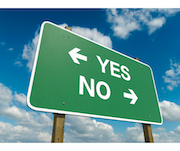
Divided Community
April 2024 was a quiet month – except for Why are they so anti-us?, a personal reflection in the New Jersey Jewish News on current antisemitism by a great-grandmother and blogger who’s in her 80’s. It’s a fine piece – except for two paragraphs near the end, where the author refers to intermarriage as a problem, says there is “protection” against it, lists ways to “make a big dent in the out-marriage rate,” and makes a “personal commitment to never attend an intermarriage. Period.”
I wrote to the editors asking why they would publish a hateful comment about interfaith marriage that would alienate a large segment of their audience: “Especially at this time, when we in Jewish communities everywhere need all the friends and allies we can get, shouldn’t this kind of commentary be avoided?”
Fortunately, since October 7 there’s been very little hostility to interfaith marriage expressed in the Jewish media. The worst example came after a mother who is not Jewish wrote a beautiful piece, “I Chose for My Family to Be Jewish. Even After October 7, I Would Choose It Again.” An Orthodox rabbi from Israel responded with “Judaism Is Not a State of Mind,” telling her that her children are not Jewish because Judaism is transmitted through the mother. As I said in the February newsletter, it’s unfortunate that the rabbi could not respect that there is more than one way to be Jewish, or see the benefit of having the number of Jewishly-engaged people expand. I feel the same way about the NJJN piece.
Of course, regulating the expression of speech is complicated. We live in a divided community. Traditional Jews are certainly entitled to hold and express the view that interfaith marriage is wrong. If the expression could be contained to the traditional world, it wouldn’t cause too much problem in the liberal world. (This month there was a long podcast of a senior Chabad rabbi explaining why interfaith marriage is terrible; there’s no sense in arguing with Chabad on this issue, and the podcast is presumably preaching almost entirely to their traditional choir anyway.) But in today’s world, speech doesn’t stay contained, and anti-interfaith marriage expression does cause harm in the liberal world, making interfaith couples feel unwelcomed, and partners from different faith backgrounds devalued.
I would hope the gatekeepers of expression in the Jewish media would keep this in mind. The NJJN piece would have been fine without the anti-interfaith marriage paragraphs, which could have been edited out. Or the piece could have been held until a piece that expressed a different view could be run alongside it.
A related and sad news item out of Israel reports that some victims of October 7 are not being allowed to be buried in Jewish cemeteries because they were not halachically Jewish. One political commentator is quoted as saying, aptly, “In the most concrete sense possible, we will not be a people until we resolve this issue.”
Worth Noting
 The few other mentions of interfaith marriage this month were a balance of positive, missed opportunity, and negative. There were several nice stories:
The few other mentions of interfaith marriage this month were a balance of positive, missed opportunity, and negative. There were several nice stories:
- The Cleveland Jewish News had a feature about communication being key to successful seders for interfaith families
- The URJ blog had a piece about melding innovation and tradition in naming ceremonies
- The UK Movement for Reform Judaism blogged that one of the four your people featured in a BBC One program on Growing Up Jewish grew up in a dual heritage family.
In a missed opportunity, the rabbi of “an inclusive Conservative synagogue” in Atlanta wrote a Passover message that emphasized how we are all Jews by choice, but made no mention of partners from different faith backgrounds.
Finally, there was “On Their ‘Schmuckboys’ Podcast, Two Women Share Their Passion for Jews Dating Jews.” Please don’t get me wrong – I think it’s great for Jews who want to date Jews to do so. What bothers me about this article is that the two young Jewish professionals who started the podcast reportedly are “passionate about growing the Jewish community” – and apparently think that dating Jewish is required for that to happen.

Leave a Reply